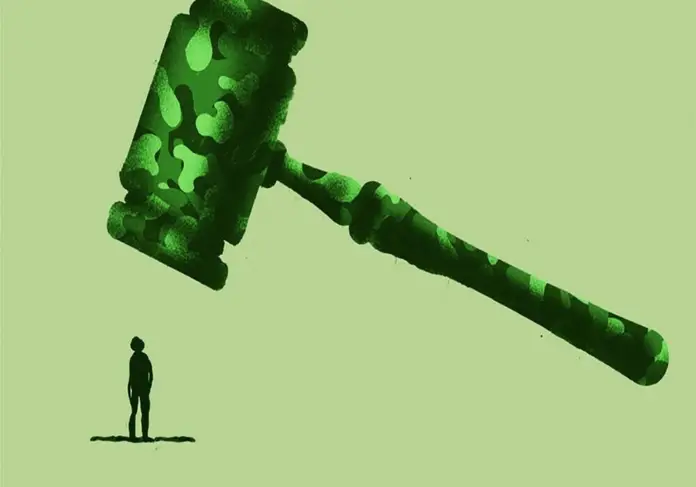On May 16th, 2023, the Inter-Services Public Relations (ISPR) issued a press release announcing the Pakistan military’s commitment to holding individuals accountable for acts of arson during the recent wave of violent protests under the Pakistan Army Act. However, this press release has sparked debates on the right to fair trials, with concerns being raised about potential violations of constitutional provisions.
The trial of civilians in military courts has been criticized as an aberration and an affront to human rights. Military courts are generally reserved for members of the military or enemy combatants. While civilian courts which are ordinary criminal courts have been entrusted for the trial of civilian cases.
Military courts were formed in 1990 and were deemed unconstitutional by the supreme court of Pakistan. However, in 2015 following the APS incident a constitutional amendment was passed, granting power to the military courts to try civilians for specific offenses.
The attacks on the government and other sensitive institutions which took place on May 9th, fall under the jurisdiction of the Pakistan penal code. These offenses such as defiling or removing the national flag from buildings (Section 123-B) and abatement of mutiny, or any other offense against the Pakistan army (Section 132) are typically within the purview of criminal courts.
The use of military courts to try civilians raises concerns regarding the potential violations of Article 10-A of the constitution of Pakistan, which gives a right of a fair trial to civilians.
Legal experts, political activists, and international organizations have raised their concerns about the violation of human rights.
According to Dinushika Dissanayake, Deputy Regional Director for South Asia at Amnesty International the trial of civilians in military courts is contrary to international law.
‘‘Trying civilians in military courts is contrary to international law.’’
Dinushika Dissanayake, Deputy Regional Director for South Asia at Amnesty International
The issue is expected to be challenged in court to protect civil liberties.
The outcome of this challenge will play a significant role in designing legal framework and protecting human rights in Pakistan.







